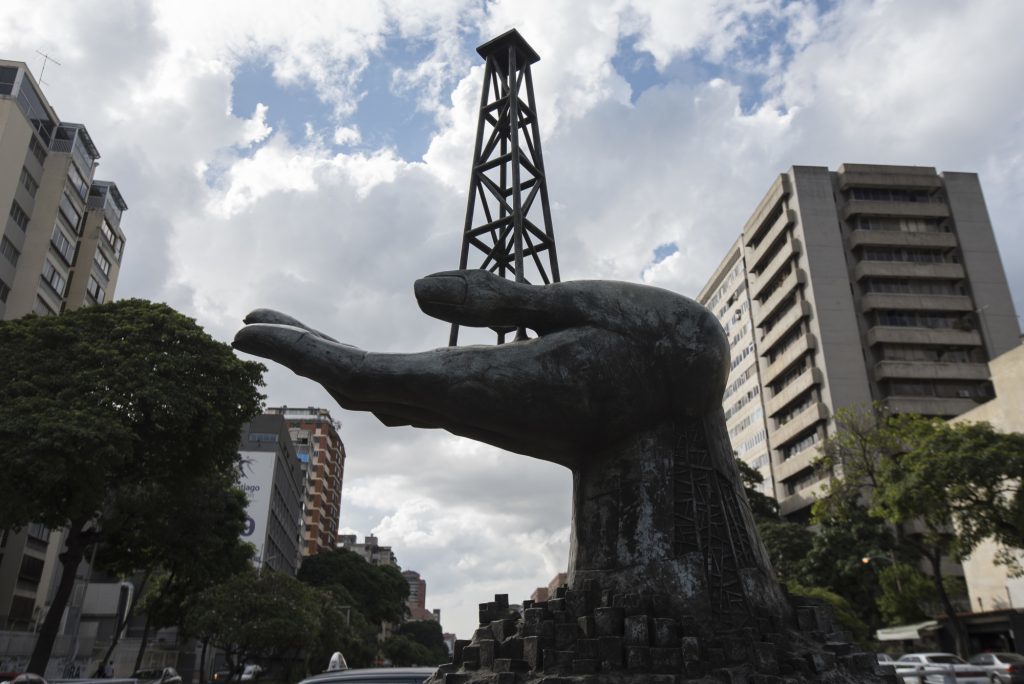
Trump administration officials have given five energy companies with strong ties to Houston another three months in the oil fields of Venezuela.
In a decision just before midnight Friday, the U.S. Treasury Department granted waivers to Chevron, Schlumberger, Halliburton, Baker Hughes and Weatherford — allowing them to continue to do business in the crisis-ridden South American nation until April 22.
Seeking to remove Venezuelan President Nicolas Maduro from power, the Trump administration has imposed a series of sanctions over the past two years, which, among other things, prohibit buying Venezuelan crude oil and conducting financial transactions with the Venezuela government or its state-run oil company Petroleos de Venezuela SA, or PDVSA.
The five companies have been able to stay in Venezuela through waivers and licenses issued every three to six months by the Treasury Department. Until Friday’s renewal, the licenses were set to expire on Wednesday.
“Chevron is a constructive presence in Venezuela, where we have been part of the local communities for nearly a century,” the company said in a statement. “We remain focused on our base business operations and supporting the more than 8,800 people who work with us and their families. Our operations continue in compliance with all applicable laws and regulations.”
Facing frequent power failures, theft of equipment and other deteriorating conditions in Venezuela, Chevron and the other four companies are trying to maintain business connections and access to the world’s largest proven oil reserves, which hold a valuable type of heavy crude that is prized by refiners and easily extracted by conventional and less expensive forms of drilling.
With the Russian oil company Rosneft and China National Petroleum Corp. making an aggressive push in the South American nation at the invitation of Maduro, energy executives and analysts fear that the Russians and Chinese would dominate the Venezuelan oil sector if the American companies leave.
Before the sanctions, Venezuela was producing 1.3 million barrels of crude oil per day. Exports to the United States have fallen to zero but production levels remain around 800,000 barrels per day with most of that coming from Rosneft’s and CNPC.
Most of that oil is being exported to destinations in China, India and Southeast Asia prompting many observers to wonder if the Trump administration will enact secondary sanctions that to cut off that business.
This article first appeared on the Houston Chronicle – an Energy Voice content partner. For more from the Houston Chronicle click here.